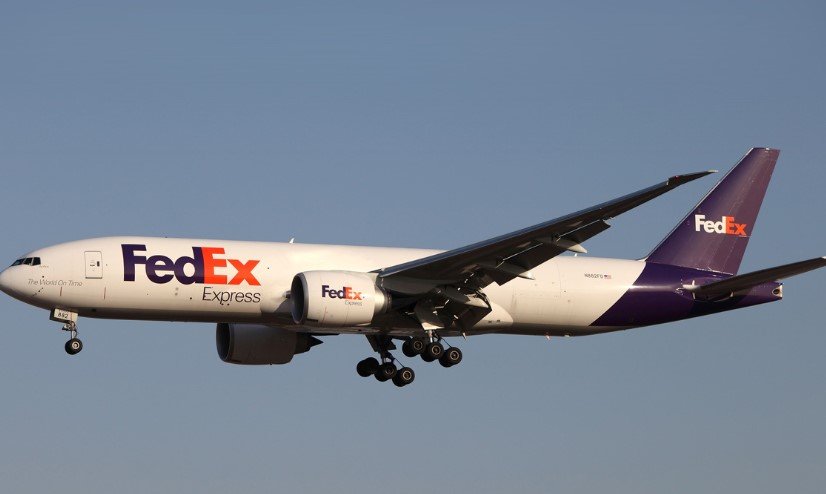FedEx has started its first nonstop flight service from the West to Riyadh, Saudi Arabia, using a Boeing 777 freighter. This move connects the Americas and Europe directly to the Kingdom, supports Vision 2030 goals, and aims to strengthen Saudi Arabia as a global logistics hub, with flights running six times a week and links to Guangzhou and Shanghai.
Flight Service Details and Operations
FedEx rolled out this new route on September 3, 2025, marking a key step in expanding global trade links. The Boeing 777 freighter flies nonstop from major points in the Americas and Europe to Riyadh, then continues to key Asian cities like Guangzhou and Shanghai. This setup helps move goods faster and more efficiently.
Shipments from Riyadh reach Northern Gulf markets through FedEx air and road networks. The service focuses on time-sensitive deliveries for businesses, including small and medium enterprises. It handles bulky, oversized, palletized, or heavy items, plus temperature-controlled and dangerous goods.
FedEx leaders noted that this flight adds capacity and flexibility to their worldwide operations. It meets growing demands in sectors like energy, manufacturing, mining, healthcare, and automotive.

Boosting Saudi Arabia’s Role as Logistics Hub
Saudi Arabia aims to become a top global logistics center under Vision 2030, which seeks to diversify the economy beyond oil. The new FedEx service aligns with this by improving connectivity and trade efficiency. Air cargo in the Kingdom handled 0.92 million tons in 2024 and is expected to grow to 2.45 million tons by 2033, nearly tripling in volume.
This growth reflects rising demand for reliable shipping options. FedEx’s nonstop flights cut transit times and costs, making it easier for Saudi businesses to import and export goods. Experts say such links will draw more international investment and create jobs in logistics.
The General Authority of Civil Aviation praised the move as a sign of global commitment to Saudi aviation. It boosts the sector’s competitiveness and supports economic goals.
- Enhanced access to global markets for Saudi exporters.
- Faster delivery for imports in critical industries.
- Support for small businesses with economy shipping options.
Alignment with Vision 2030 and Economic Impact
Vision 2030 drives Saudi Arabia to build stronger trade ties and reduce oil dependence. FedEx’s flight service fits this by facilitating smoother supply chains and encouraging foreign partnerships. The Kingdom’s push includes major projects like the King Salman International Airport in Riyadh, set to handle massive cargo volumes.
FedEx plans a regional hub at this airport to serve Saudi Arabia, Bahrain, Kuwait, and Qatar. This investment, part of a $1.85 billion commitment to the Middle East, shows confidence in the region’s potential. About $1.5 billion targets Riyadh’s hub, focusing on infrastructure, digital tools, and sustainability.
Economic analysts predict this will add resilience to global supply chains amid disruptions like recent shipping delays. It also empowers local firms to compete internationally.
The service includes digital solutions for customs clearance and tracking, simplifying processes for users. This tech edge helps businesses manage inventory and respond to market changes quickly.
FedEx’s Broader Strategy in the Region
FedEx has deepened its presence in Saudi Arabia with direct-serve operations starting in September 2025. The company launched FedEx Logistics for freight forwarding and invests in talent and technology. These steps aim to advance the Kingdom’s transformation into a trade powerhouse.
Leaders at FedEx emphasize adapting to dynamic trade environments. The nonstop flight is part of a global network expansion, increasing options for customers. It reflects a long-term bet on Saudi growth, with benefits extending to neighboring countries.
| Aspect | Details |
|---|---|
| Flight Frequency | Six times per week |
| Aircraft Type | Boeing 777 freighter |
| Connections | Americas, Europe to Riyadh; onward to Guangzhou, Shanghai |
| Cargo Capacity | Handles bulky, heavy, temperature-controlled, dangerous goods |
| Projected Growth | Saudi air cargo from 0.92M tons (2024) to 2.45M tons (2033) |
Challenges and Future Outlook
While the launch brings opportunities, challenges remain in global logistics, such as fluctuating fuel prices and regulatory hurdles. FedEx addresses these with efficient operations and strong partnerships. The company focuses on sustainability, aligning with Vision 2030’s green goals.
Looking ahead, experts expect more airlines to follow suit, further elevating Riyadh’s status. This could lead to increased competition and innovation in air freight. For now, FedEx’s move sets a benchmark for express shipping in the region.
Share your thoughts on how this flight service might change global trade. Comment below or spread the word to keep the conversation going.
